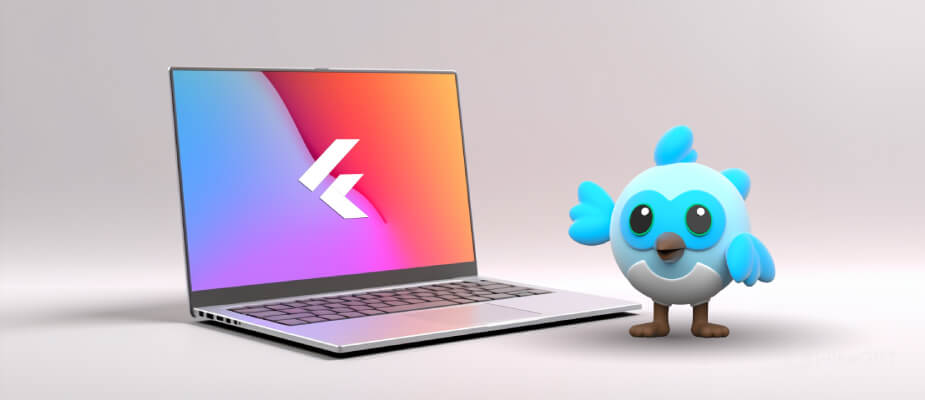One of the biggest advantages of Flutter is that it allows you to build apps for multiple platforms from a single codebase and the web is one of them.
A lot of beginners seem to be confused about when to use Flutter for the web and if they can use it to build a website, landing page or blog, although Flutter for the web is production-ready since version 2.0 (early 2021) it does lack some features and is not suitable for all types of apps, so let’s see when to use Flutter for the web.
Understanding Single Page Application (SPA)?
Flutter for the web is what we call a Single Page Application (SPA), which means that the entire app is loaded once and then the content is dynamically changed without reloading the page.
Flutter is not the only framework that allows you to build SPAs, the most common ones are React and Angular.
Advantages of SPAs
The main advantage of SPAs is that they provide a better user experience because the page doesn’t need to reload every time the user navigates to a different page, it also much faster once the page is loaded since no additional assets or resources need to be downloaded.
Disadvantages of SPAs
The main disadvantage of SPAs is that they are not SEO friendly because the content is dynamically loaded and search engines don’t execute JavaScript code, so they can’t see the content.
Another disadvantage is that SPAs are harder to develop and maintain because they require more complex code and additional libraries to handle routing, state management, etc. where a traditional website would just use HTML and CSS with a little bit of JavaScript.
When to Use Flutter for the Web
If you are building a mobile first app
If you are building a mobile first app, meaning that the majority of your users will use the mobile app, then you should use Flutter for the web since the work required to make it web compatible is minimal and you will be able to reuse most of the code, most of your users won’t bother to use the web version, but for those who do it will be a nice addition, the cost of developing and maintaining the web version will be very low.
If you are the only developer or working with a small team
Building a web application is not easy buisness, it requires a lot of work and skills, for example HTML, CSS, JavaScript are almost mandatory and unless you are willing to put in the work, you will need to either learn everything yourself or hire someone to do it for you.
Flutter for the web however use Dart which is the same language used for the mobile version, so if you are already familiar with it, you will be able to build a web app without having to learn anything new.
If you are building a prototype
If you are building a POC (Proof of Concept) or a prototype, Flutter can be a great way to show your idea to potential investors or clients, it is already mature enough to build a simple and most widgets are already available, so you can focus on the core functionality of your app.
When Not to Use Flutter for the Web
If you are building a content heavy website
Like we said before, SPAs are not SEO friendly, meaning that any site that relies primarily on search engine traffic should not be built with Flutter for the web, this includes:
- Blogs
- E-commerce
- Landing pages
- Portfolios
If you are building a landing page
Landing pages are usually static and don’t require any complex logic, so using Flutter for the web is not only completely unnecessary but also discouraged since it will go against the main purpose of a landing page which is to be fast and SEO friendly.
Your project is mostly web focused
Although Flutter for the web is production ready, it still not mature enough to compete with other frameworks like React or Angular, the load time is slow, the widgets and packages are not all compatible with the web and we still have no idea how the Flutter team will support the future of the web.
As such, unless your app is not complex and you are willing to put in the work to make it web compatible, you should probably use another framework.
Conclusion
Flutter for the web is a great way to build a web app and the Flutter team is already working hard to make it better with features like Web Assembly, improved load time and Accessibility, but not all apps are suitable for Flutter for the web, so make sure to understand the advantages and disadvantages of SPAs before you start building your app.
I hope this article was helpful, if you have any question or suggestion, feel free to reach out to me on :
- By email at [email protected].
- If you want to know more about me, you can check out my about page.
You can use my articles with no cost or attribution, feel free to edit them and make them your own.
